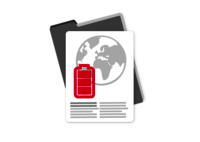The EU Commission's Omnibus 1 draft provides for significant simplifications to the carbon border adjustment mechanism (CBAM) for fairer trade.
Here are the most important CBAM changes:
- Small importers are to be exempted from the CBAM obligations, i.e. mainly SMEs and individuals. These are importers who import small quantities of CBAM goods that represent only very small quantities of embedded emissions entering the European Union from third countries. This works by introducing a new cumulative annual CBAM threshold of 50 tonnes per importer, which is expected to remove CBAM obligations for around 182,000 or 90% of importers, mainly SMEs, while still covering over 99% of the emissions in scope.
- The rules for companies that remain within the scope of CBAM are to be simplified, i.e. the authorisation of CBAM declarants and the rules relating to CBAM obligations, including the calculation of embedded emissions and reporting obligations.
- The long-term increase in the effectiveness of CBAM is to be achieved through stricter regulations to prevent circumvention and abuse.
- This simplification precedes a future extension of CBAM to other ETS sectors and downstream goods, followed by a new legislative proposal to extend the scope of CBAM in early 2026.
The key question is how companies should behave during the transitional period, as current law imposes requirements but changes are foreseeable. Furthermore, it is not certain that the proposed changes will be accepted as they are in the draft.
The trade-e-bility consulting team will be happy to answer any CBAM questions you may have via +49/40/750687-300 or sales@trade-e-bility.de.

